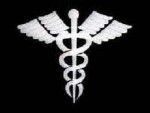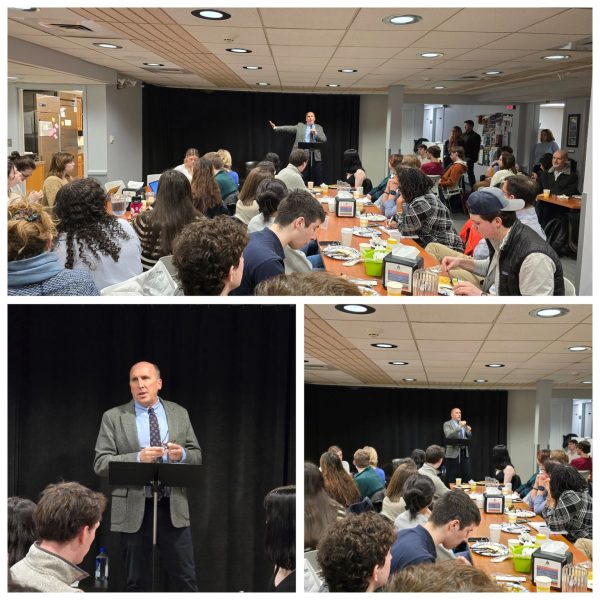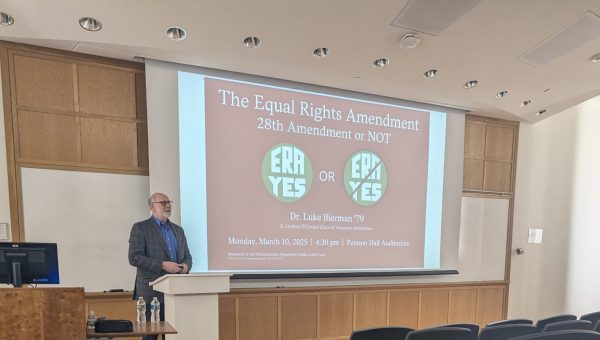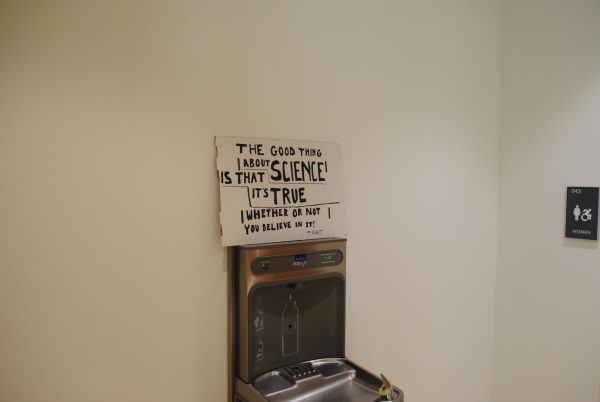Medical Conference Held on Campus

Last weekend Colgate’s pre-health students were given the unique opportunity to participate in the third Michael J. Wolk ’60 Conference on Medical Education. This year’s conference, which took place in Love Auditorium, was titled “The Future of Medical Practice: Impact of Health Care Reform.”
Michael J. Wolk ’60, M.D., Cardiologist and Clinical Professor of Medicine at Weill-Cornell Medical College in New York City and former President of The American College of Cardiology, explained that the title reflected the original intent of the conference: to discuss how health care reform would affect current students. He said that since the expected reform had not happened, the focus would be shifted towards the challenges and opportunities involved in medical education and the health care issues that our generation will be charged with fixing. A common theme throughout the conference was the complexity and sloppiness of the current health care system, and ways that the next generation of doctors should look at solving the problem.
There were four keynote addresses throughout the conference. The first was given Friday afternoon by William F. Streck, M.D., the President and CEO of Bassett Health Care in Cooperstown, New York and Professor of Clinical Medicine at the Columbia University College of Physicians and Surgeons program at Bassett. Streck spoke about the state of the current health care system and where he expects developments will occur in the future.
“Health care costs a lot of money and it is hard to understand,” Streck said, explaining that not only are costs expected to skyrocket over the coming decade, but that there is also a gross geographic disparity in costs. “If I have a heart attack in Texas, it would cost me $12,000,” Streck said, “while in Bethlehem, Pennsylvania, it would cost me $6,000.”
Streck explained that physicians are financially encouraged to go into specialties as opposed to primary care, and that primary care is suffering as a result. He said that doctors are currently paid based on the quantity of procedures performed, not quality. Streck predicted that group-based care will increase in the future and that technology will play an even greater role, both in an attempt to manage the “cognitive overload” of the current system. He also said that one solution to the primary care problem would be increasing pay for primary care physicians, which is already starting to occur.
The next keynote address was given on Friday evening by Daniel B. Ornt ’73, M.D., Vice Dean for Education and Academic Affairs at Case Western Reserve University School of Medicine in Cleveland, Ohio. After reminiscing about his time at Colgate, Ornt spoke about medical school admissions, giving advice to the pre-med students in the audience. He said that, unfortunately, GPA and MCAT scores remain hugely important, and that the ideal candidate “values the journey of medical education, not just the outcome.”
Ornt, Wolk and others sat down with students at a dinner following the address and gave even more advice while catching up on what was new at Colgate and telling stories about their time here.
After a panel discussion Saturday morning about different types of doctors and another panel about rewarding alternatives to the M.D. degree, the next keynote address was given. The Executive Vice President and CEO of the American College of Physicians John Tooker P’12, M.D., MBA gave the address, titled: “U.S. Health Care Reform: The Promise and the Reality.” He began by stating that this is not the first time that the U.S. has encountered health care reform as a huge national issue; In 1938, Franklin D. Roosevelt dealt with a circumstance similar to the one faced now by Barack Obama. According to Tooker, President Obama had three goals for health care reform: reduce costs, ensure affordable health care for everyone and guarantee choice. Tooker explained the dilemma of increasing coverage and decreasing cost at the same time.
Tooker explained that the most recent roadblock standing in the way of Obama achieving real reform was the election of Republican Senator Scott Brown in Massachussets, what Tooker described as “a blockbuster that the Democrats didn’t see coming.”
According to Tooker, the country is spending more each year on health care, but in recent years the quality of care has not improved significantly, and the demand for health care will only increase with the aging and growing population.
Tooker’s address ended with a look towards the future. He explained that President Obama is now regrouping and will attempt to continue discussion and debate, but that it may be a significant amount of time before reform actually happens.
After Tooker’s address, a panel of doctors’ spouses spoke about what it is like to be married to a doctor and what a doctor’s life is like outside of the office. They explained the arduous medical education process and the sacrifices that need to be made by doctors and their partners to make it work. Barbara Inra P’06, R.N., the wife of a doctor who spoke in the morning’s panel, said to students, “you will be ‘getting in’ for the next fifteen years,” explaining the competitive process beyond acceptance into medical school. Despite the challenges described, there was a general sense that the medical profession was still worth pursuing, as everyone on the panel described how satisfying it was.
Henry Weil, M.D., Assistant Dean for Education at Columbia University’s College of Physicians and Surgeons, gave the final keynote address in which he discussed the residency system.
“The [residency] system is sloppily set up to create a workforce, not to help you find your calling or manage your life,” Weil said, “so how do you find a fit?”
Weil spent the majority of his time giving advice on how students should decide what type and specialty they are interested in devoting their lives and practices to, as they are faced with a staggering amount of choices.
The Conference ended with another panel, this one made up of four recent Colgate alumni, who discussed their journey from Colgate to medical school and related what medical school is really like.
“My favorite part of the conference was the panel of Colgate graduates,” junior Kaitlyn Kelly said. “It was helpful to see people who had actually been through the process, to see how they got in and what they’re doing now, but they only had science majors, and it would have been nice to see some people who went the non-traditional route [to medical school]. I also liked the spouses’ panel. I plan on having a family and it was nice to hear from the husband of a female doctor.”
“I was especially impressed by the caliber of people Colgate got to come speak to us,” senior Yasmin Aziz said. “I thought Dr. Wolk was a real role model for us, and he asked a lot of the questions that people were thinking but wouldn’t ask. He was a teacher.”
“Health care is going to change, and it is important for us, as future doctors, to know about what’s going to happen,” Aziz continued. “This is information we couldn’t really get elsewhere and it was collected and simplified.”





